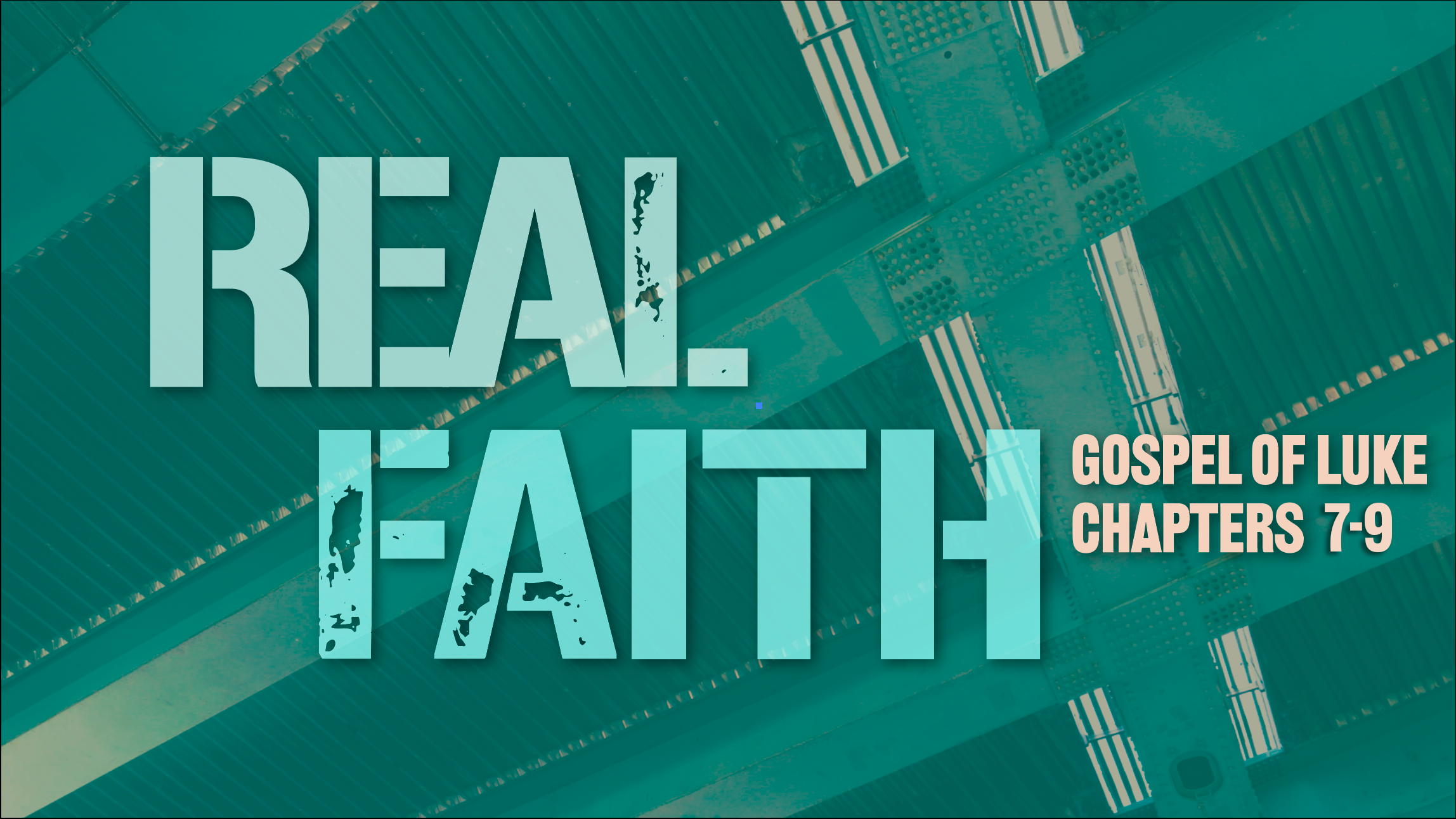
BP Teachings from Luke
BridgePointe is teaching through the Gospel of Luke in 2025 & 2026. Click on the graphics below to see the sermon series on Church Center.
Simply Jesus
Luke Ch. 1 - 6
Jesus is the most interesting person in all of human history. No single person has been the object of more attention, scrutiny, investigation, and debate. And still, after 2000 years, people long to know what is true about Him. Luke wrote his biography of Jesus to make clear who Jesus is and what it means for us.
Lost & Found
Luke Ch. 15
What do you do when you lose something? It all depends on the value the lost item has to you. If it means a lot, you'll do everything you can to get it back. In Luke 15, Jesus tells three touching stories to show how God the Father feels about people who are lost without Him. This Christmas, these stories will help us rediscover the love God has for us and what He has done through Jesus to get us back.
Real Faith
Luke Ch. 7 - 9
Faith is at the center of our relationship with Jesus. It is how we are saved by Him from our sin. It is how we learn to follow Him each day. But what does it really mean to have faith in Jesus? This series will look at stories about Jesus that reveal what is true about Jesus and help us understand what it means to put faith in Him.
Goals
Luke Ch. 17-19
The New Year is often a time to take inventory and make changes. This series will challenge us to rethink what we're striving after. Instead of trying to become a better YOU, Jesus wants you to become more like Him. By looking at how Jesus lived and what He said, this series will provide practical, sustainable ways for you to live like Jesus.
Just Follow
Luke Ch. 9 - 12
The goal of a disciple of Jesus is to become like Jesus. A great question to ask is, "What woulld Jesus do if he were me?" Sometimes it's hard to imagine the answer to that question. This series will peak in on Jesus life and listen to His teaching to learn how we can become more like Him in the ordinary, everyday parts of our lives.
Book Recommendations
We have pre-ordered the following two studies in the Gospel of Luke, and have them available at a discount in the lobby on Sunday.
Alabaster Bibles combines imagery, design, and craftsmanship into the full text of each book of the Bible—to create a visually beautiful reading experience.
A journaling edition of the Book of Luke, spiral-bound for comfortable study and note taking
We have samples of these books in the lobby, but you’ll need to order these for yourself:
Explore Jesus as teacher, healer and embodiment of compassion with renowned Bible scholar N. T. Wright. He unveils Luke’s gospel through an accessible translation and profound commentary, revealing its brilliance and historical importance.
With a scholar's mind and a pastor's heart, N. T. Wright guides us through the New Testament book of Luke, showing how we can particpate in Luke’s story by making it real in our own world. Twenty-six sessions for group or personal study.
Reading Scripture
Each time BridgePointe revisits The Gospel of Luke is a chance to read through the book again. The book is 24 chapters long.You could read a chapter a day, or use the 30 day plan below to read M-F and be done in six weeks, or read it straight through over the course of a month.
Overview & Context
The Bible Project is a free online resource for studying the Scripture, with media and tools to help you get a fuller picture of the Bible.
30 Day Luke Reading Plan
If Scripture reading isn’t a regular rhythm we encourage you to reorder your daily routine to make it a priority. We encourage you to use a notebook or journal and use the SOAP method for Bible Study detailed down at the end of this page.
Day 1: Luke 1:1-38
Day 2: Luke 1:39-80
Day 3: Luke 2:1-52
Day 4: Luke 3:1-22
Day 5: Luke 4:1-30
Day 6: Luke 4:31-44; Luke 5:1-16
Day 7: Luke 5:17-39; Luke 6:1-11
Day 8: Luke 6:12-49
Day 9: Luke 7:1-50
Day 10: Luke 8:1-25
Day 11: Luke 8:26-55
Day 12: Luke 9:1-50
Day 13: Luke 9:51-62; Luke 10:1-28
Day 14: Luke 10:29-42; Luke 11:1-13
Day 15: Luke 11:14-54
Day 16: Luke 12:1-59
Day 17: Luke 13:1-35
Day 19: Luke 14:1-35
Day 20: Luke 15:1-32
Day 21: Luke 16:1-31
Day 22: Luke 17:1-37
Day 22: Luke 18:1-43
Day 23: Luke 19:1-48
Day 24: Luke 20:1-47
Day 25: Luke 21:1-38
Day 26: Luke 22:1-38
Day 27: Luke 22:39-71
Day 28: Luke 23:1-49
Day 29: Luke 23:50-56; Luke 24:1-12
Day 30: Luke 24:13-53
Using SOAP to read Scripture
S.O.A.P. is an acronym for Scripture, observation, application and prayer. It’s a powerful tool that moves you from the text into the reality of your life. Using this method consistently will make it a habit and something you are familiar with. Use a journal or notebook and apply this method to work through any passage of Scripture.
Scripture
Write the Scripture reference and read through the passage slowly.
Observation
Write down what you notice from the reading. For example...
• What’s the main point the author is trying to get across?
• What’s something challenging or new?
• Is there anything in the passage you want to study more?
Application
Write down how this applies to your life today.
• How does this challenge you to live as a disciple?
• How does it intersect with your current life circumstances?
• Is God speaking a word of encouragement or challenge to you directly?
Prayer
Write your prayer to God in response to what you’ve read.









